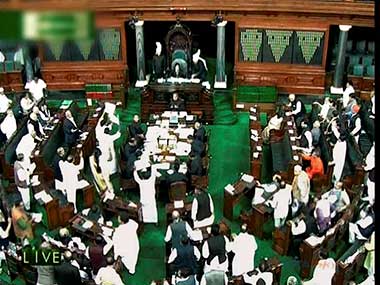On the issue of convicted lawmakers the members of Parliament may have a point. The Supreme Court’s judgement which says disqualification of a lawmaker takes place from the date of conviction may be full of good intention, but it has, from the perspective of the leader concerned, a degree of unfairness built into it. For example, the court does not explain what happens when the people’s representative forfeits his seat upon conviction by a lower court but goes on to win the case on appeal. Given the delays in the judicial process in our country, it might take a few years for the case to be settled. By the time he is in the clear, the tenure of the House might be over. Is there redressal available to him? No. Again, if he is disqualified, then an election has to be conducted within six months and a new representative elected for the seat he held. What happens when the earlier one wins his case in a superior court soon after the elections? [caption id=“attachment_1089411” align=“alignleft” width=“380”]  India’s MPs are not going to change just because the Supreme Court wants them to. PTI[/caption] “This court ought to have appreciated that the impact of the decision in the reality of the Indian judicial system is that the rate of acquittal in the appellate court is high and keeping in view the time taken to dispose of the criminal appeals, Section 8(4) was enacted to protect the House and ensure that governance is not adversely impacted,” the government’s review petition in the court said. The question of governance is important in the times of coalition governments running on a thin majority. Sudden disqualification of members could have a destabilising effect on the functioning of the governments. Of course, there’s the fear of ruling parties trying to fix their political opponents with vindictive legal action. Given the resources at their command, the police force in particular, it would not be difficult for them to manipulate evidence and get a favourable verdict in lower courts. In such cases honest but less resourceful candidates could be at distinct disadvantage. What the political class has not made open is its secret yet pervasive distrust of the lower judiciary which is prone to corrupt practices. These are valid problems the Supreme Court’s verdict fails to take into account, as does the middle class railing non-stop against the political class. Not everything is alright with our politicians what with close to 30 percent of parliamentarians and much-higher-than-that percentage in assemblies having criminal cases pending against them. But the solution to it needs to be realistic. It was one good chance for the members of Parliament to dispel the public perception that our representative institutions are dens of criminals, which certainly is not the case. There is as much talent and honesty in Parliament and assemblies as in any other institution of the country, if not more. What’s surprising is that they have not even made a token gesture to assuage the feeling of the public. In the amendments to the Representation of People Act, they have allowed convicted members to retain their seats without the power to vote. This amounts to nothing. They could have done much more. Coming on the back of their refusal to come under the RTI, this is disappointing. The public image of the political class remains severely tarnished due to the presence of criminals in its ranks. The solution to the problem cannot come through court fiats; it has to change at the political grassroots level. It is a fact that political parties and criminals have a symbiotic existence at that level and politics there is more about muscular assertion of presence than about ideology. The one heartening feature amid the recent developments is the active advocacy of accountability by several parties and individual members in Parliament. If this trend continues, it could end up achieving something significant.
There are valid problems the Supreme Court’s verdict fails to take into account, as does the middle class railing non-stop against the political class.
Advertisement
End of Article


)
)
)
)
)
)
)
)
)



